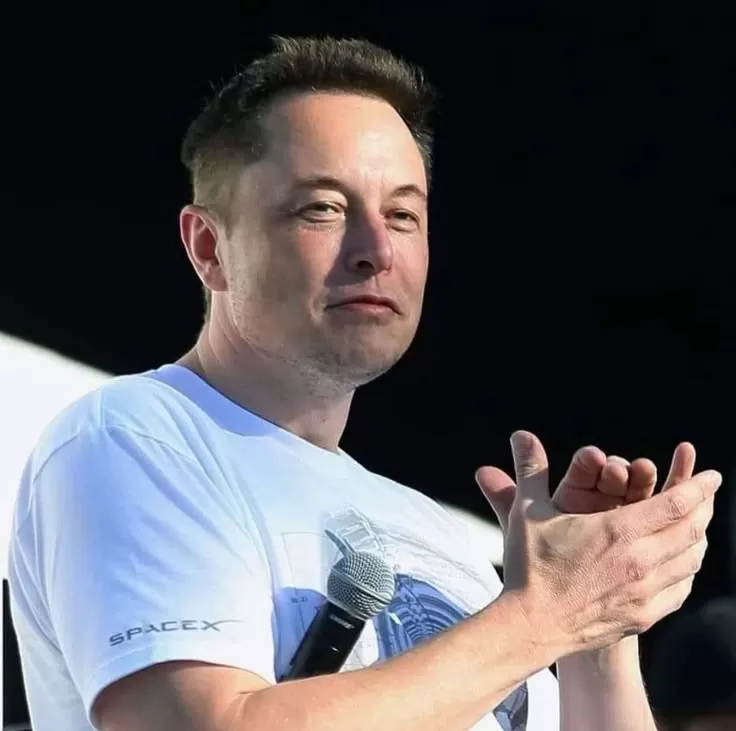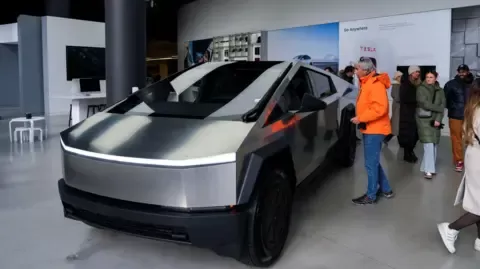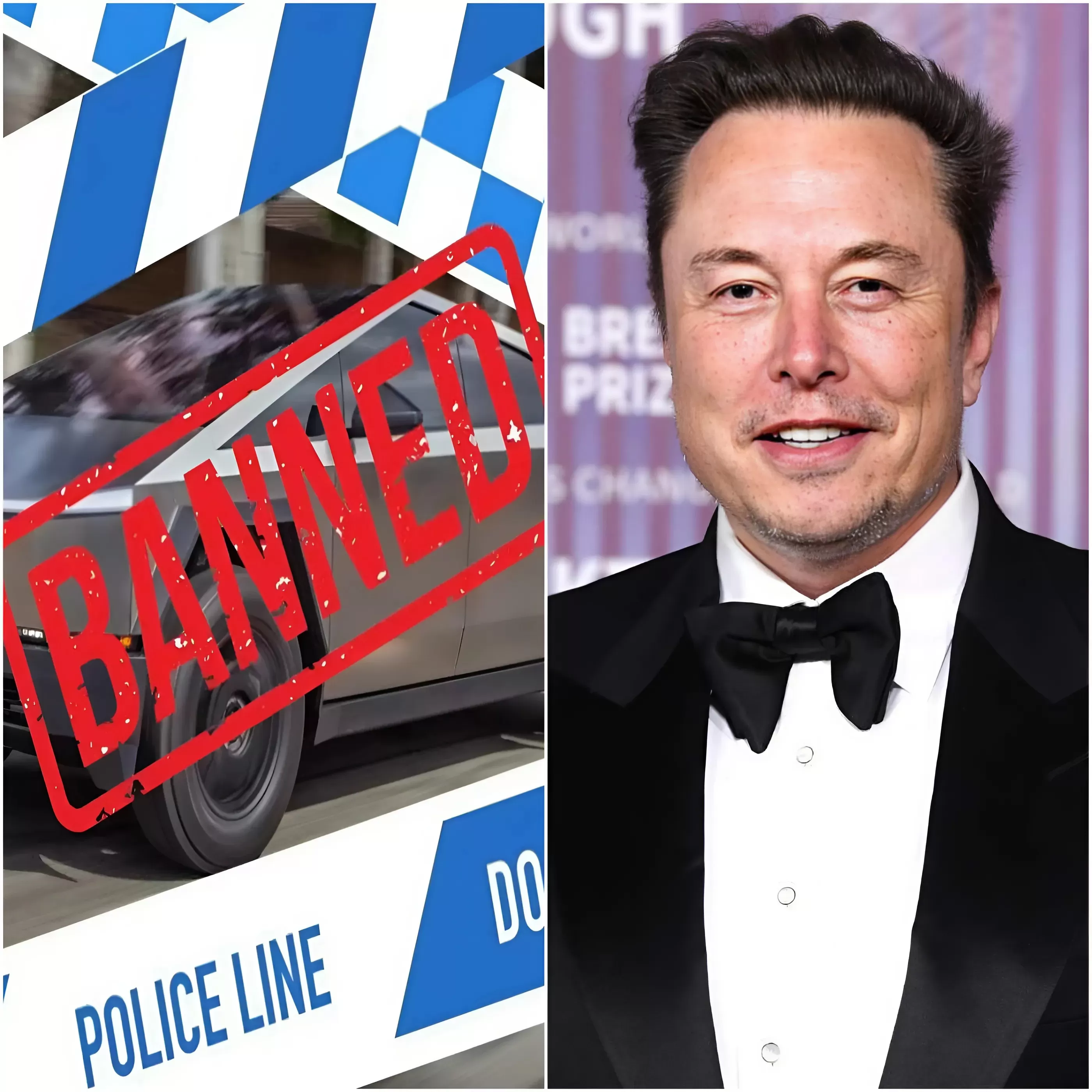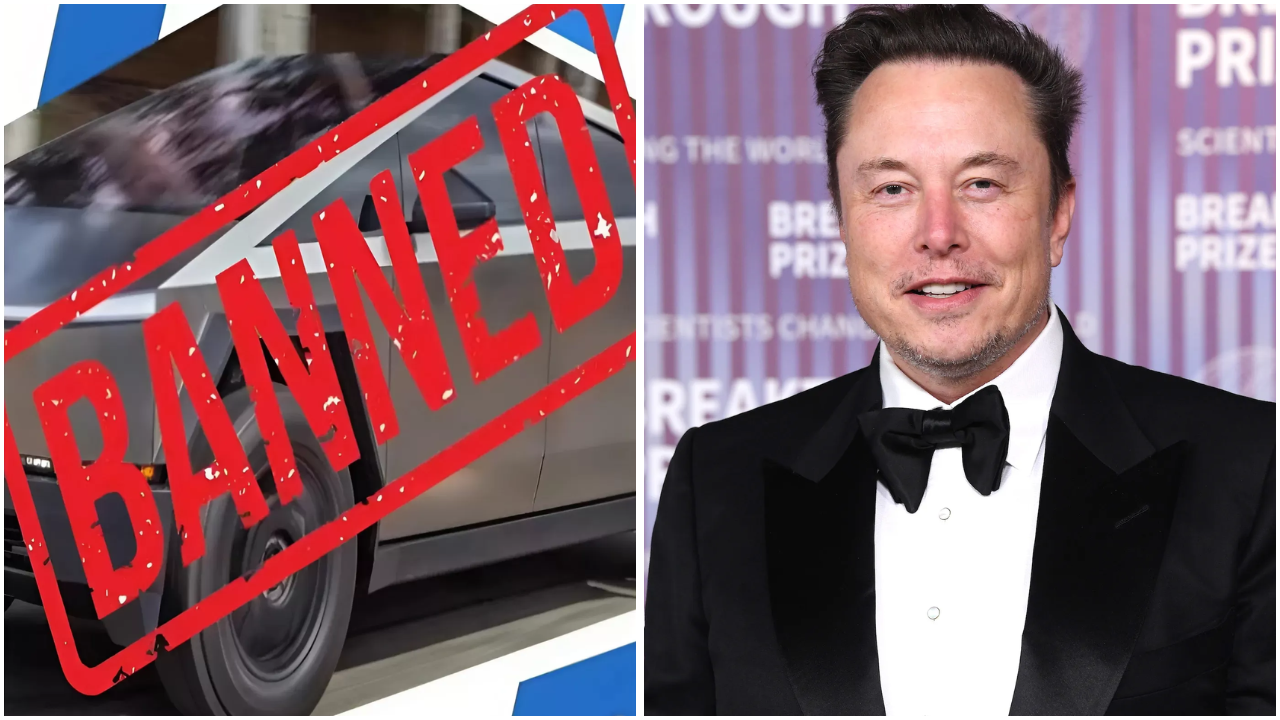In an unprecedented move, governments around the world have announced an immediate ban on the Tesla Cybertruck from all public roads. The move, which comes after months of growing safety concerns, has sent shockwaves through the auto industry and left Elon Musk with just four words in response.

Safety concerns have emerged from several regulators, including the NHTSA (U.S.), the EU Transportation Safety Council, and China’s MIIT, which have cited critical design flaws for the Cybertruck. Key issues include dangerous exterior panels, compromised structural integrity, and blinding glare from unpainted stainless steel.

The Cybertruck’s exterior panels, made of sharp-edged stainless steel, have been deemed a pedestrian hazard, with crash tests showing catastrophic results for pedestrians and cyclists. The vehicle’s structure, designed as an exoskeleton, failed to adequately protect passengers in collision scenarios. Additionally, solar glare from the shiny material has caused accidents, distracting or blinding drivers.

Faced with such criticism, Elon Musk responded shockingly, tweeting, “Regulators fear innovation. Pathetic.” The cryptic comment sparked outrage from safety activists, while Tesla fans defended Musk, calling the ban an “attack on progress.” The Tesla CEO’s reaction raised questions about whether he would be willing to make the compromises needed to make the Cybertruck compliant with required safety standards.
Meanwhile, the Cybertruck ban has had disastrous consequences for Tesla. The automaker is now forced to recall millions of vehicles it has already sold, which will result in huge financial losses. Production of the Cybertruck has been halted, and the company will face legal battles with regulators over alleged safety violations. The financial losses for Tesla could be enormous, while its reputation could suffer irreparable damage.
Meanwhile, Tesla’s competitors are wasting no time in exploiting the situation. Ford CEO Jim Farley quipped on Twitter, “Maybe it wasn’t just the ‘unbreakable’ windows that needed fixing.” The reference to the Cybertruck’s failures hit home, further fueling controversy over its safety.
However, despite the serious legal and financial implications, Tesla could decide to redesign the vehicle to meet safety standards. Such a change could take years, with the possibility that Musk, known for his decisiveness and stubbornness, could refuse to make significant changes. His response to regulators, in fact, suggests that he is unwilling to compromise to comply with regulations. This attitude could call into question the future of the Cybertruck, even if Musk has always demonstrated a great ability to meet challenges in unexpected ways.
The Cybertruck, the most controversial vehicle in recent automotive history, may be facing an existential crisis. The ban imposed in several global markets has raised a crucial question: is the ban a form of over-regulation or a necessary measure to ensure citizen safety? The answers to this question could determine the fate of the Cybertruck and ultimately shape the evolution of the automotive industry in the years to come.
What is certain is that the future of the Cybertruck is now more uncertain than ever. Its controversial nature, combined with a radical design and the criticism it has attracted, has made it a symbol of unbridled innovation for some and reckless risk for others. In any case, the automotive industry will be watching developments closely, as the Cybertruck affair could mark a significant turning point for the regulation of electric vehicles and road safety globally.
Now, the question remains: Can Elon Musk deliver on his vision, or will he have to cave in to growing regulatory pressure? The future of the Cybertruck and Tesla depends on how they respond to this challenge.






